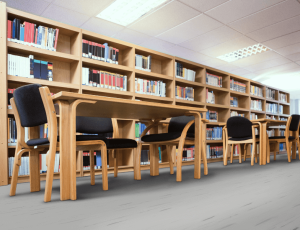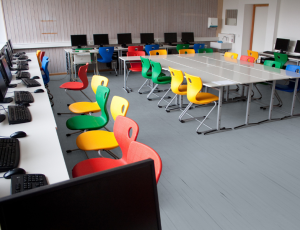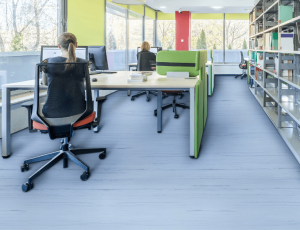PVC Floor Coverings
PVC Floor Coverings
PVC floor coverings are a popular choice in both residential and commercial spaces. Thanks to their versatility, durability, and aesthetics, PVC floor coverings are the ideal solution for those seeking a practical and stylish floor. Below we present more information on this topic. PVC floor coverings, also known as vinyl floorings, are made of polyvinyl chloride, a synthetic material with high durability. These floorings are often chosen for their water resistance, ease of cleaning, and a wide variety of patterns and colors.
Advantages of PVC Floor Coverings
Waterproof: PVC floor coverings are completely waterproof, making them an ideal choice for rooms exposed to moisture, such as bathrooms or kitchens.
Ease of Cleaning: These floorings are very easy to keep clean. Regular vacuuming and mopping are enough.
Durability: PVC floor coverings are resistant to damages, such as cracks or scratches.
Variety of Choices: They are available in many patterns and colors, which allows matching them to any interior style.
Materials Used in the Production of PVC Floor Covering
The main ingredient of PVC flooring is polyvinyl chloride, but it can be enriched with additional materials to improve its properties. Additives such as mineral fillers, plasticizers, pigments, and stabilizers are possible.
Advantages of Materials
Polyvinyl Chloride: This is an exceptionally durable material that ensures the longevity of the flooring.
Mineral Fillers: They increase the flooring's resistance to mechanical damage.
Plasticizers: They facilitate the formation of the flooring and increase its flexibility.
Pigments: They allow for the creation of different colors and patterns.
Stabilizers: They ensure the thermal stability of the flooring, allowing it to better withstand temperature changes.
Choosing the Right PVC Floor Covering
Choosing the right PVC flooring depends on many factors such as style, thickness, format, and installation method. It is important that the flooring is matched to the intensity of use of the place where it is to be installed.
Sound Insulation
Thickness, the presence of a felt layer, and a foam layer in some PVC floors favor good sound insulation. These elements both prevent the spread of noise to other rooms and limit external sounds, which is important in some rooms.
Ease of Installation
PVC floorings are characterized by ease of installation compared to other types of floors, such as ceramic tiles. PVC floor coverings can be installed using different methods, depending on the format: rolling, clips, or self-adhesive tiles. Some floorings are heavy enough that they do not require glue.
Heterogeneous PVC Floor Coverings
Heterogeneous PVC floor coverings consist of many different layers, which gives them unique properties and makes them an excellent choice for various applications. More information about heterogeneous coverings can be found.
Homogeneous PVC Floor Coverings
Homogeneous PVC floor coverings consist of a single, uniform layer of material, making them particularly durable and easy to maintain. More information about homogeneous coverings can be found.
Materials Used in PVC Floor Coverings
PVC floors are made of polyvinyl chloride, a type of plastic. They may also contain additional ingredients, such as plasticizers, which give the PVC floor its characteristic flexibility, as well as dyes and pigments that give the floor its color and pattern.
.webp)
.jpg)



















.jpg)


































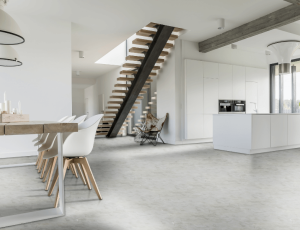
















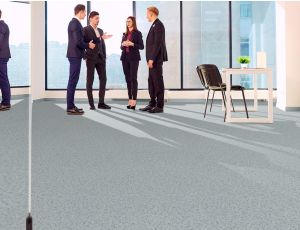










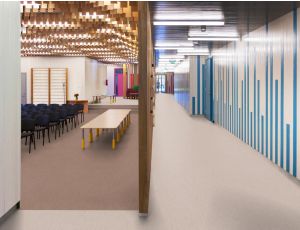




































































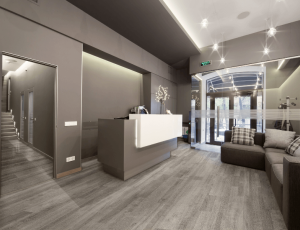








.jpg)





































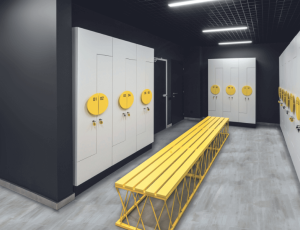












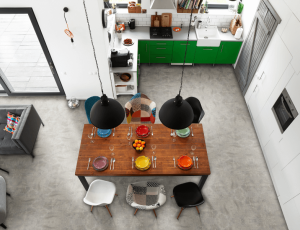

















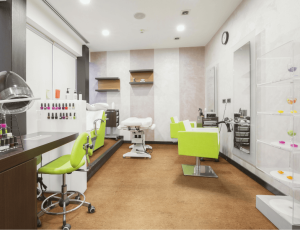









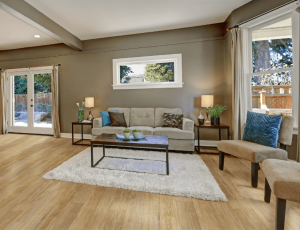




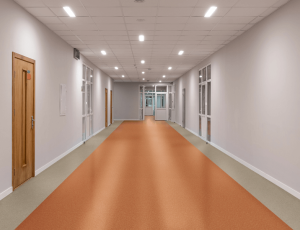










.jpg)

































